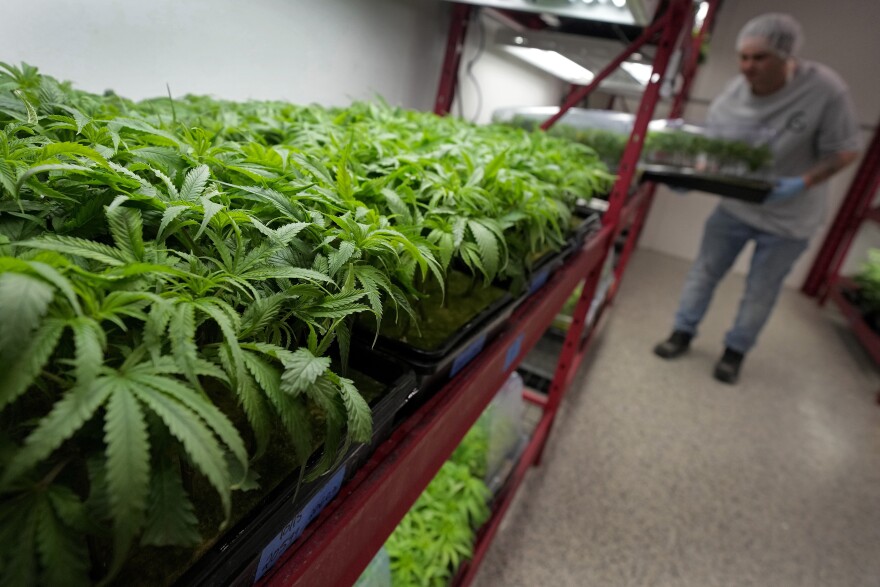Recreational marijuana supporters are moving forward with an effort to get it on the ballot, despite uncertainty about the constitutionality of a new law that slaps more regulations on the process.
Supporters of State Question 837 received permission to begin collecting signatures for a constitutional amendment that would legalize the use of recreational marijuana.
Supporters can begin collecting signatures Aug. 6. The deadline to turn in the 172,993 signatures is Nov. 3.
Lawmakers passed and Gov. Kevin Stitt in May signed into law Senate Bill 1027 that puts more restrictions on the process voters use to get issues on the ballot.
It quickly drew two legal challenges in the Oklahoma Supreme Court.
The state’s high court has not blocked the law from taking effect because it wrote that it is considering a challenge to a State Question 836 to open the state’s primaries. The court order does not explain the reasoning.
Among other things, the new petition law puts caps on the number of signatures that can be collected by county, which supporters say forces greater participation outside the highest populated counties.
Jed Green is director of Oklahomans for Responsible Cannabis Action, a marijuana policy advocacy group backing legalization.
“We are proceeding forward and following the guidance provided by the Secretary of State at the front end,” Geen said. “This is basically extra administrative work for us. The more egregious unconstitutional aspects of 1027 may be litigated at some point in the future.”
The geographical requirements of the new law mean the organization has to collect signatures in 20 counties, which he is confident can be successfully done because his organization is statewide, he said.
“I think it is nearly impossible for anyone to be successful under the new rules,” said Amber England, who has worked on several ballot initiatives, including the successful effort to expand Medicaid and a current effort to raise the minimum wage to at least $15 an hour. The latter issue will be on the ballot in June 2026. While the state may have an initiative petition process on the books, because of the restrictions lawmakers have implemented, it effectively has been shut down, she said.
“I have worked on various different initiative petitions over the last decade,” she said. “The process has gotten harder every single time because of the different restrictions the Legislature has put on the process in an effort to take power away from voters.”
After lawmakers refused to act, voters used the process to expand Medicaid, pass criminal justice reform and legalize medical marijuana.
But voters have balked at legalizing recreational marijuana.
In 2018, 57% of voters approved legalizing medical marijuana.
But less than five years later, they defeated a proposed state statute change that would have legalized recreational marijuana. The vote was nearly 62% against State Question 820.
Pat McFerron, who ran the campaign against the recreational marijuana legalization, said it failed in all 77 counties.
“I think most Oklahomans believe the current system we have is de facto recreational,” he said. “The barrier is so miniscule so I see no desire among the public to make it even easier to buy cannabis.”
Oklahoma Voice is part of States Newsroom, a nonprofit news network supported by grants and a coalition of donors as a 501c(3) public charity. Oklahoma Voice maintains editorial independence.








